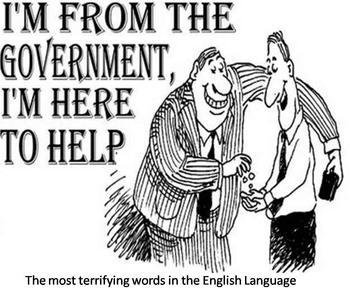Coerced “Charity” Isn’t Charitible

One of the biggest arguments that those in favor of taxation use is the “we have an obligation to feed the hungry and clothe the poor” argument. I wholeheartedly agree. Those who have more should absolutely find ways to help those who have less. I wholeheartedly disagree that the government should have any say at all as to how that happens. Using taxation as a means of social welfare is actually a really lazy and inefficient way to provide necessary goods and services.
If I had $50 in my hand and I was willing to give it to a worthy cause, as an individual, I have the opportunity to research and find a cause or organization that aligns with my values and has a reputation that I’m comfortable as far as how the organization distributes the funds. Or I can give those $50 to a specific individual as a gift or an investment in them. This is seen as noble and worthy, however if I advocate for privatization and not using tax funds for social welfare purposes, I’m attacked as heartless and uncaring.
If the government has $50 of the taxes I paid, the government gets to decide where those funds go. If I have a moral objection to a program funded by the government I have functionally zero control over the matter. Of course I can contact my representative and make them aware of all the reasons I object to tax money going to the organization, but that is just about it.
What seems to happen then is that instead of defunding the organization I have moral objections to, my representatives choose to continue funding this organization and additionally fund an organization I support. Then the person who supports the organization I oppose goes to their representative to try to get better funding for their organization than I have for my organization, and on and on. This is exactly how we got into our current mess of a mis-matched patchwork of social welfare programs and agencies that seem completely untouchable and seem to grow and grow.
That’s is only part of the issue with coerced “charity.” The biggest argument I have against coerced “charity” is that is wholly immoral. If I had that same $50 in my pocket and chose to keep it, it’s my money. If I had that $50 in my pocket and gave it to someone who needed it, it’s charity. If I had $50 in my pocket and 3 of my acquaintances got together and decided to have 2 of them restrain me and the other to take the $50 and give it to a food bank, that’s not charity, it’s theft. If 100 of my neighbors got together and voted and decided that I should have to pay the $50 to the same food bank and if I didn’t a guy with a gun could come to my home and take the $75 and then take $25 of it for “compensation” and give the other $50 to the food bank, it’s still theft, they just call it “taxation” and the “social safety net.”
It’s long past time we start paying attention to the means at least as much as the ends. In my example of the $50, in these cases the “end” is always that the food bank ends up with the $50 which just about everyone agrees is a positive thing. The means is what changes and the difference in means is the difference between voluntary and involuntary. If it’s immoral for 1 or 2 or a group of my acquaintances to take the $50 from me, then how does it suddenly become moral for a group of my acquaintances to vote on authorizing a guy with a gun to come take the $50 plus whatever other fees they feel like, to then give the $50 to the food bank? It doesn’t.
So the question is, exactly how much of what I’ve earned do you think you have the right to take from me, no matter for what purpose. The answer is “none.”
Love the analogies! I wish more people saw this issue for the common sense that it is!
Thanks! :-)